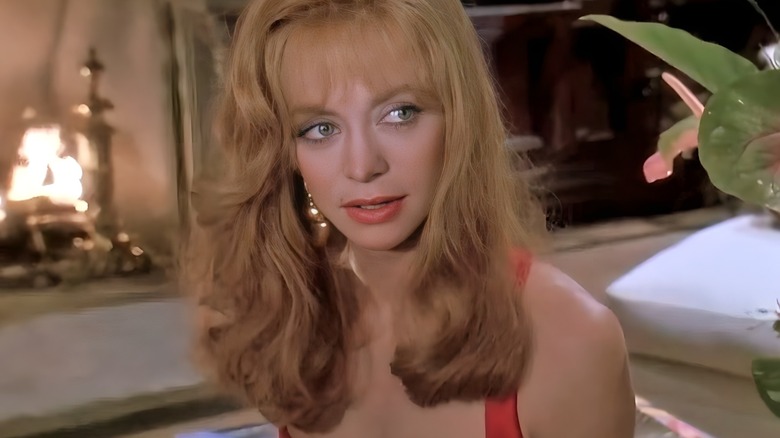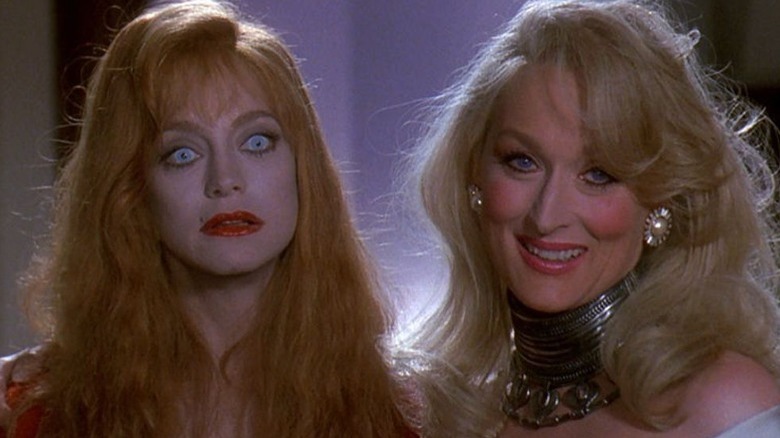Death Becomes Her: Why A Darker Ending Was Scrapped, According To Goldie Hawn
"Death Becomes Her" has been widely appreciated for its audacious dark humor. However, a different ending portrayed an alternate image of what the movie intended to communicate and, in the view of star Goldie Hawn, would have improved the entire feature.
The original ending would have taken place 27 years into the future and seen Helen Sharp (Hawn) and Madeline Ashton (Meryl Streep) watching their long-rivaled-over love interest Dr. Ernest Menville (Bruce Willis) sharing his final moments with the true love of his life — a bartender played by Tracey Ullman. While Madeline makes sarcastic comments, Helen longingly stares at the couple, jealous of their happy existence.
Hawn explained why the new conclusion, where her character delivers a comedic one-liner following a skirmish with Madeline at Ernest's funeral, was chosen instead in a behind-the-scenes interview, saying that, "Because it didn't test as well, there was another ending that was put on, rewritten, and we actually reshot it." Hawn was especially disappointed, feeling that the original ending embodied what "Death Becomes Her" was all about. "And that is really what the movie says," she added. "And, unfortunately, it wasn't an up-funny ending. It didn't have the punch the rest of the movie had ... And people just sort of deflated. So it's all about money isn't it?"
Plenty of fans are bound to agree with Hawn's opinion on the matter. But just as in the film, she and her co-star don't quite see eye-to-eye.
Meryl Streep thinks the ending leaves you right where you want to be
Goldie Hawn and Meryl Streep may have never thrown each other down a flight of stairs in real life, but that doesn't mean the two always had the same viewpoint. This was especially the case when it came to the alternate ending to "Death Becomes Her." While the more light-hearted ending was far from a satisfying conclusion for Hawn, Streep saw the finale in a very different light.
In a July 1992 interview with Bobbie Wygant, Streep admittedly had some nice things to say about the original resolution, commenting, "We had one ending for this movie that was sort of ruminative, very thoughtful, moralistic, and we junked it. We went back ... and shot another complete ending which is the one you see." However, unlike Hawn, the three-time Oscar winner was fond of the reshot scene, believing it placed the audience in a better place by the film's end and was more in line with its zany nature. "I love this ending," she continues. "It's exactly where you want to take this insane fairytale of vanity. You know, you just want to blast it apart."
"Death Becomes Her" is a treasure trove of lost scenes, with rewrites and audience reactions prompting major changes throughout its production, including the omission of up to seven speaking roles. Whether you see these changes as a hindrance or an enhancement, they do little to take away from the quirky charm of this beloved cult classic.

